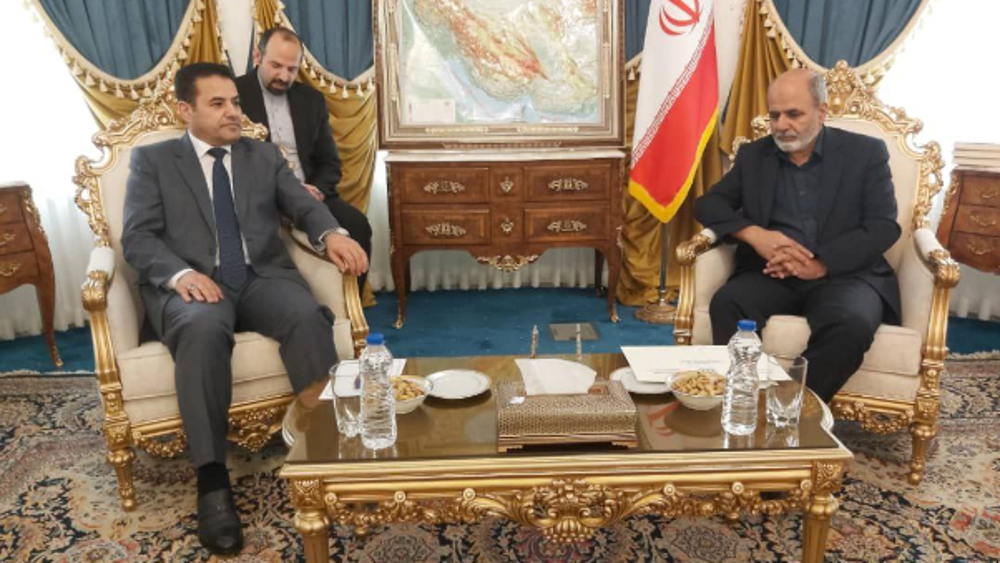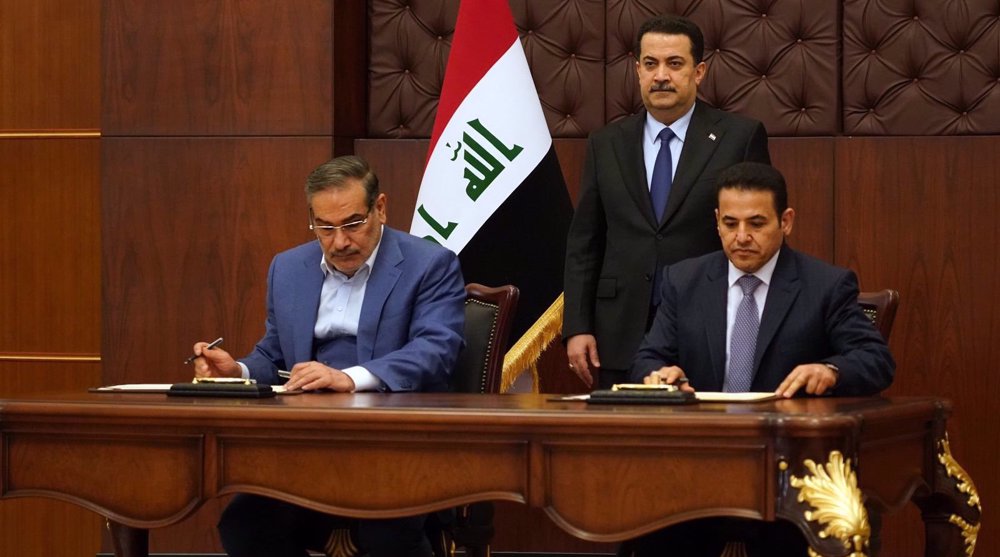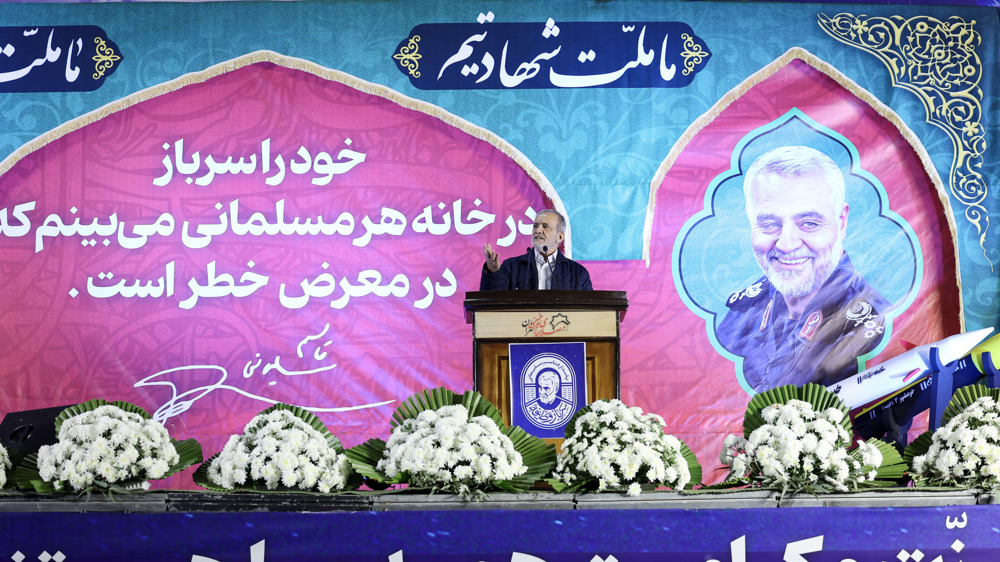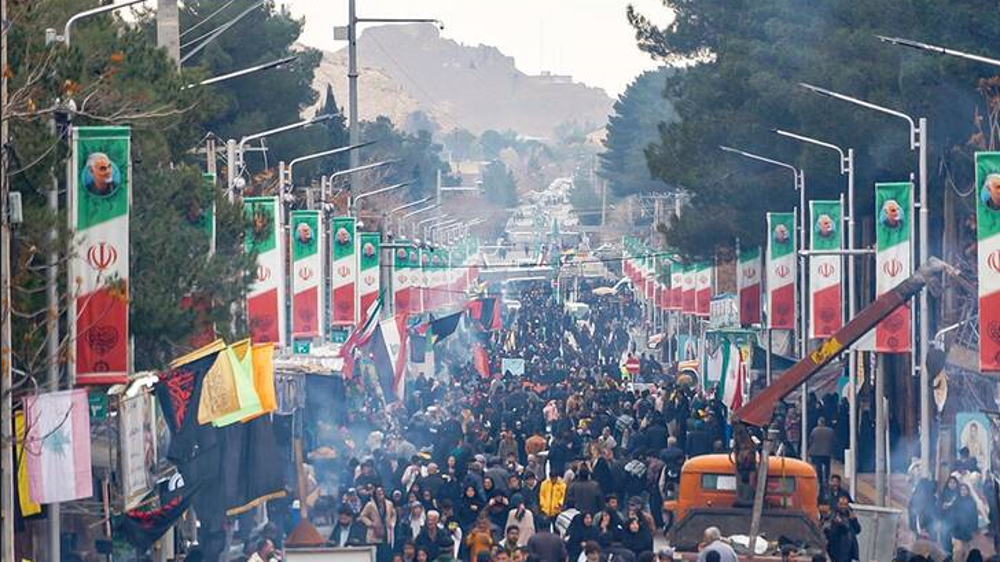Iran-Iraq security agreement ‘roadmap’ for ensuring lasting security at borders: SNSC chief
The secretary of Iran's Supreme National Security Council (SNSC) says the recent security agreement between Iran and Iraq provides a roadmap for ensuring durable security at their common borders and lays the groundwork for expanding cooperation in other areas.
Ali-Akbar Ahmadian made the statement in a meeting with visiting Iraqi National Security Adviser Qasim al-Araji on Monday as the two exchanged views and discussed the implementation of the Tehran-Baghdad security agreement signed in March, as well as the most important regional and international developments.
Ahmadian lauded the security agreement, which he said was the result of months of negotiations and joint efforts by the two countries, as a very appropriate and strategic measure and underscored the strict implementation of its provisions.
“We, within the framework of the agreement, expect the Iraqi government to guarantee the security of the country's borders with Iran as soon as possible, while ending the presence of counterrevolutionary elements in the country,” Ahmadian noted.
The SNSC chief underlined that the long-standing religious and civil roots between Iran and Iraq guaranteed the “deep and extensive relations” between the two countries.
Iran’s policy has always been to support a government based on the will of the people in Iraq, Ahmadian said, adding, “The blood of the martyrs of the two countries in the relentless fight against terrorism and insecurity is intermingled, the most exemplary of which is the martyrdom of top resistance commanders, Lieutenant General Qassem Soleimani and Abu Mahdi al-Muhandis.”
The two influential commanders, along with their comrades, were assassinated in a drone strike near Baghdad International Airport on January 3, 2020, which was directly ordered by former US president Donald Trump.
Ahmadian also said the will of the Islamic Republic is to expand and deepen relations with neighboring countries, especially the friendly and brotherly country of Iraq, adding that to implement this policy, “We are ready for bilateral and multilateral cooperation and interaction in all areas.”
Araji, for his part, voiced Iraq's commitment to the border security agreement with Iran, saying the stability and development of Iran and Iraq help promote not only the two countries' security but also the entire region's peace and progress.
“We consider Iraq's security as that of Iran’s,” Araji underlined.
The top security adviser expressed the Iraqi government's willingness and determination to continue its close relations, cooperation, and interaction with Iran in all areas.
Iran and Iraq signed a security agreement that includes coordination in protecting the border between the two countries in the Iraqi capital of Baghdad on March 19.
Anti-Iranian terrorist groups residing in the Iraqi Kurdistan region have increased their malign activities, especially in border areas. Responding to the activities, Iran’s Islamic Revolution Guards Corps (IRGC) launched several rounds of airstrikes against their positions since September 24 last year, vowing to continue the attacks till the groups are unarmed.
Iran has, on countless occasions, warned the Iraqi Kurdistan’s local authorities that it will not tolerate the presence and activity of terrorist groups along its northwestern borders, saying the country will give a decisive response should those areas become a hub of anti-Islamic Republic terrorists.
VIDEO | Press TV's news headlines
Israel launches new strikes against Syrian defense facilities
Netanyahu orders Israel negotiators to continue in Doha
Israeli regime strikes buildings in Lebanon’s south
Suicides among Israeli forces surge amid Gaza war
Gen. Soleimani turned threats into opportunities and fortified resistance axis
Houthi: General Soleimani thwarted US conspiracies in West Asia
Islamic Jihad prevents Israeli captive from taking own life











 This makes it easy to access the Press TV website
This makes it easy to access the Press TV website